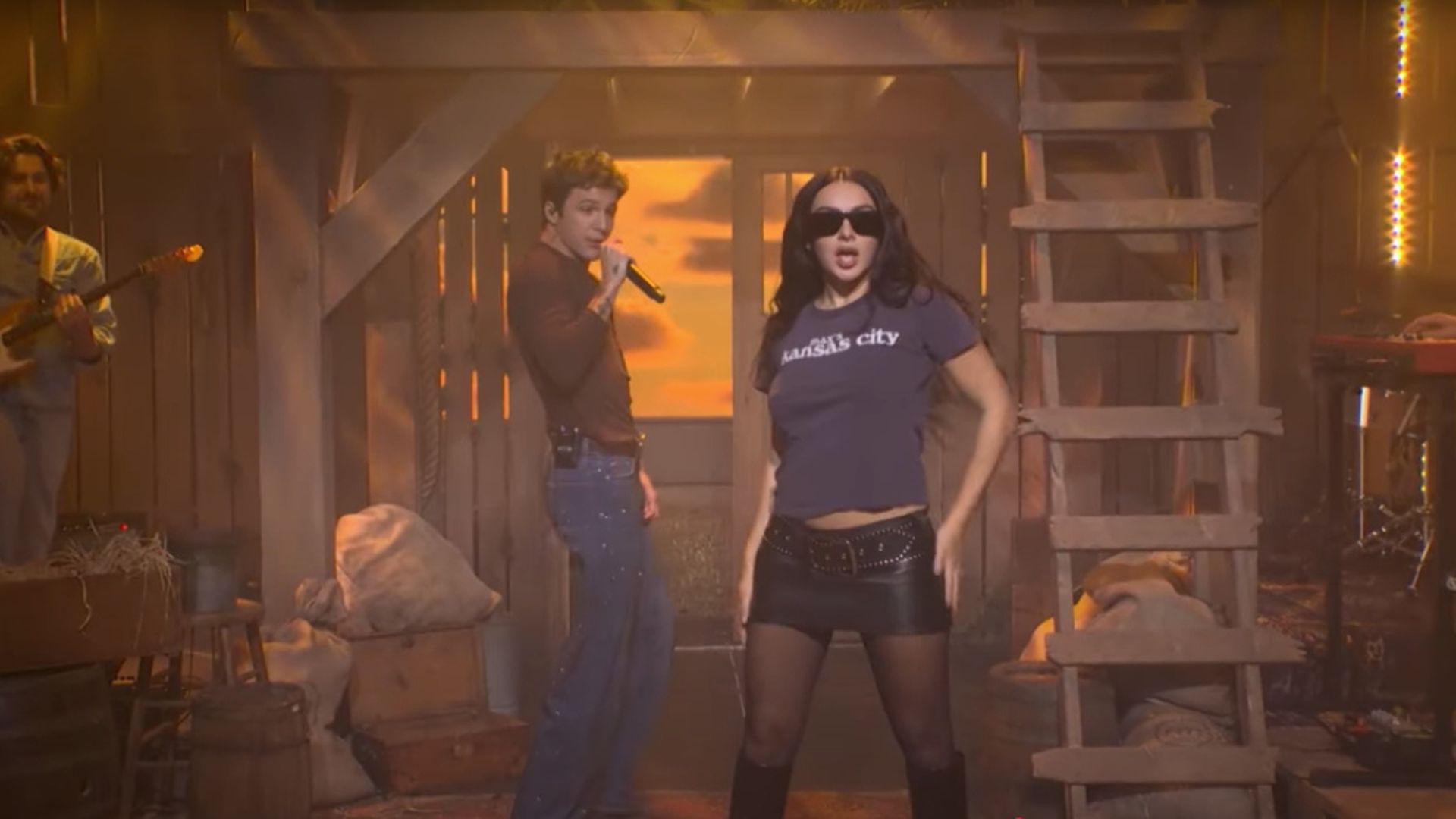The collection of articles “Racionais MCs: Between the Trigger and the Storm” crowns a new relationship between the academy and the largest rap group in Brazil
The biggest, longest running and most important rap group in Brazil, i Racionais MC’s for more than a decade they have been part of the repertoire of texts used by history professors from all over the country to analyze the socio-economic realities of the national peripheries. But the recognition of Racionais as the canon of Brazilian art acquired a new status when, in May 2018, the prestigious University of Campinas (Unicamp) announced that Sobrevivendo no Inferno, an album from 1997, would be one of the must-read literary works (or would it be an audition?) mandatory for your entrance exam.
In the same year, Sobrevivendo no Inferno became a book, with the texts printed in a very carefully edited edition by the Companhia das Letras, and the group had their first exhibition, Racionais MCs: Three Decades of History, which during one week brought more than 500 articles, including objects, photographs and videos, at the Red Bull Station, then a cultural space sponsored by the energy drink brand in the center of São Paulo.
Since then, the celebration of the quartet’s legacy has deepened: in 2022 the documentary Racionais: Das Ruas de São Paulo Pro Mundo premiered on Netflix and, in December of the same year, they participated in an open class at the Unicamp to talk about their buildings.
The year 2023 is also important for Racionais from this point of view. Celebrating 35 years of existence, the group presents a new and more substantial exhibition, scheduled to debut at the Favelas Museum, while Unicamp organizes to confer the title of doctor honoris causa (a title granted to eminent people who do not need to undergo Graduation) for Mano Brown, Ice Blue, Edi Rock and Kl Jay.
But first, the first collection of academic papers on the group was published in May. Racionais MCs: Between the Trigger and the Storm, with the subtitle taken from a verse by Edi Rock in the song “Nego Drama”, is a release by Perspectiva, within his new collection Hip Hop em Perspectiva, which until now it featured only one title, Barulho Preto, a classic 1994 book by American researcher Tricia Rose and considered one of the first volumes of what universities call “hip hop studies.”
“We organized a course on Racionais at the SESC during the pandemic [A Obra dos Racionais MCs em Três Décadas, realizado online pelo Centro de Pesquisa e Formação do SESC São Paulo, em julho e agosto de 2020], and halfway through the course the idea arose of making a collection based on the presentations. Not all of the people who gave the lectures wrote, while others, such as Acauam and Tiaraju [PabloD’Andrea, professor da Universidade Federal de São Paulo]who did not lecture but contributed to the book,” says Daniela Vieira, professor of sociology at the State University of Londrina (UEL), who organizes the book and coordinates the collection together with Jaqueline Lima Santos.
The book gives an idea of the dimension of the work and of the innumerable readings that can be made on the Racionais MCs, including analyzes of the relationship between the group and the São Paulo press, discourses on race and masculinity, aesthetic analyzes ranging from texts to album covers and the relationship of the “four most dangerous blacks in Brazil” with the phonographic market.
“The Racionais are now part of the canon of Brazilian popular music,” says Daniela Vieira. That is, the Racionais are already registered in the national culture, and no one needs to “justify” themselves any longer to propose studies on the group.
“They [Racionais] they are truly fantastic, they are pioneers in several respects and have an aesthetic production that few artistic groups, whether in literature, plastic arts, cinema, reach in the history of Brazil,” agrees Acauam Oliveira, professor of literature at the University of Pernambuco ( UPE), author of the preface to the book version of Sobrevivendo no Inferno and author of an article on the album Colors and Values in Entre o Trigger e Storm.
But history hasn’t always been like this. What leads the Racionais to occupy a more important space in universities and in culture in general is the very strength of their work, according to Acauam.
“Wherever they went it wasn’t please, it wasn’t without arguing, without arguing, it wasn’t good, it wasn’t concession, it was always breaking everything, putting the finger in the face. It was always on his terms, but in places where there was no room for her to impose her own terms. If today records are always in the lists it is because young people are geniuses, who have produced a dense and consistent work that becomes fundamental for understanding our times”, says the professor.
“Little by little the academy is realizing that, to understand what Brazil has become with the end of the dictatorship, it needed to listen to Racionais, it had to listen to the voices of peripheral subjects. When you have a deep crisis in the categories of the classic left to understand reality, category of class, category of work in a precarious, uberized society, where the society of work is largely exhausted, there you have a pulsating, thinking periphery that was creating a series of new conceptual categories, and Racionais offers a synthesis, also aesthetic, artistic and of thought, of these transformations, also providing analytical tools to understand this reality that was being lost in the field of the traditional left”, summarizes Acauam.
Daniela Vieira further underlines that this process also occurs through the “new condition of rap”, a new social and symbolic place for national rap, with a greater circulation of this work in different spaces, including the internationalization of Brazilian production. “This becomes more evident from Emicida”, points out the maestro.
However, both Daniela and Acauam Oliveira agree that one of the central factors in this new moment, not only for Racionais, has to do with the fact that the quota policy has left Brazilian universities blacker. “This is very much related to the students who have entered universities since the 2000s, this generation that has fought for affirmative action policies and enters through these policies and who will look at new research topics that dialogue with their experiences, their ruptures. ” says Daniela.
“Quota policies are an achievement of the black movement, which has been striving for greater social inclusion since slavery, and, more broadly, Racionais and hip hop are part of this movement. When there was a university formed by 98% of whites, this insertion was much more difficult, but the more black the university becomes, the more space there is for it”, says Acauam.
The UPE professor points out that this transformation is not only in the themes and objects of study, but also in the way of creating knowledge, an “epistemic” change. “There are important changes in the way of seeing: what deserves to be seen, to be read, from an Afrocentric perspective? Why was Castro Alves read as the ‘slave poet’ but not Luiz Gama? Changes in the idea of value, how to interpret it. Who says that the analytical parameters of high modernism, which serve to interpret Guimarães Rosa and Clarice Lispector, are adequate to interpret the diaries of Carolina de Jesus? And who said that you have to abandon the diaries because the principle of methodological analysis does not cope with the object? You have to change your method. Who will appear in the canon if we don’t tell the story starting not from the big house, but from the slave quarters, and above all, not from the slave quarters, but from the quilombos? What happens to Machado de Assis when we understand that he wrote as a black man who hated the white elite of his time, and not as a black man who hid his race ashamed of him?” she explains. he.
This new perspective will not only concern the Racionais, who, as the main group of Brazilian hip hop and one of the most important cultural phenomena in the history of Brazil, end up being the most studied. “The tendency is for you to have new subjects, actors. In the field of hip hop, I have participated in many committees, read many publications, about other artists: a doctoral thesis on Facção Central, Sabotage, a master’s thesis on Emicida, Baco Exu do Blues, Don L, Djonga, also on lesser-known rappers, like Makalister, for example,” points out Acauam Oliveira.
Furthermore, this interest extends to other genres of peripheral production. “On my horizon, I see funk and slam being studied more and more. There are many studies on funk, even if funk still lacks the creation of its own grammar to be studied from its musical aspects, since Eurocentric music theory does not provide the necessary tools, but is studied on the perspectives of gender, of violence. Slam studies, which come a lot from a gender perspective, raise very interesting questions that are being asked for hip hop, hip hop’s weaknesses, especially misogyny,” Acauam points out.
All this new production must find an audience outside the universities with the Hip Hop em Perspectiva collection. “The next book to be released is a translation of From Black Power to Hip Hop, by Patricia Hill Collins, we will also be translating Halifu Osumare’s book (The Africanist Aesthetic in Global Hip-Hop) and we are keeping an eye on production on hip hop which was released in France. It’s a collection that will last at least 10 years, there’s a lot going on and the field of hip hop is very effervescent all over the world. Also, we should have other collections, in the case of the Brazilian studios,” says Daniela Vieira.
Source: Terra
Earl Johnson is a music writer at Gossipify, known for his in-depth analysis and unique perspective on the industry. A graduate of USC with a degree in Music, he brings years of experience and passion to his writing. He covers the latest releases and trends, always on the lookout for the next big thing in music.








